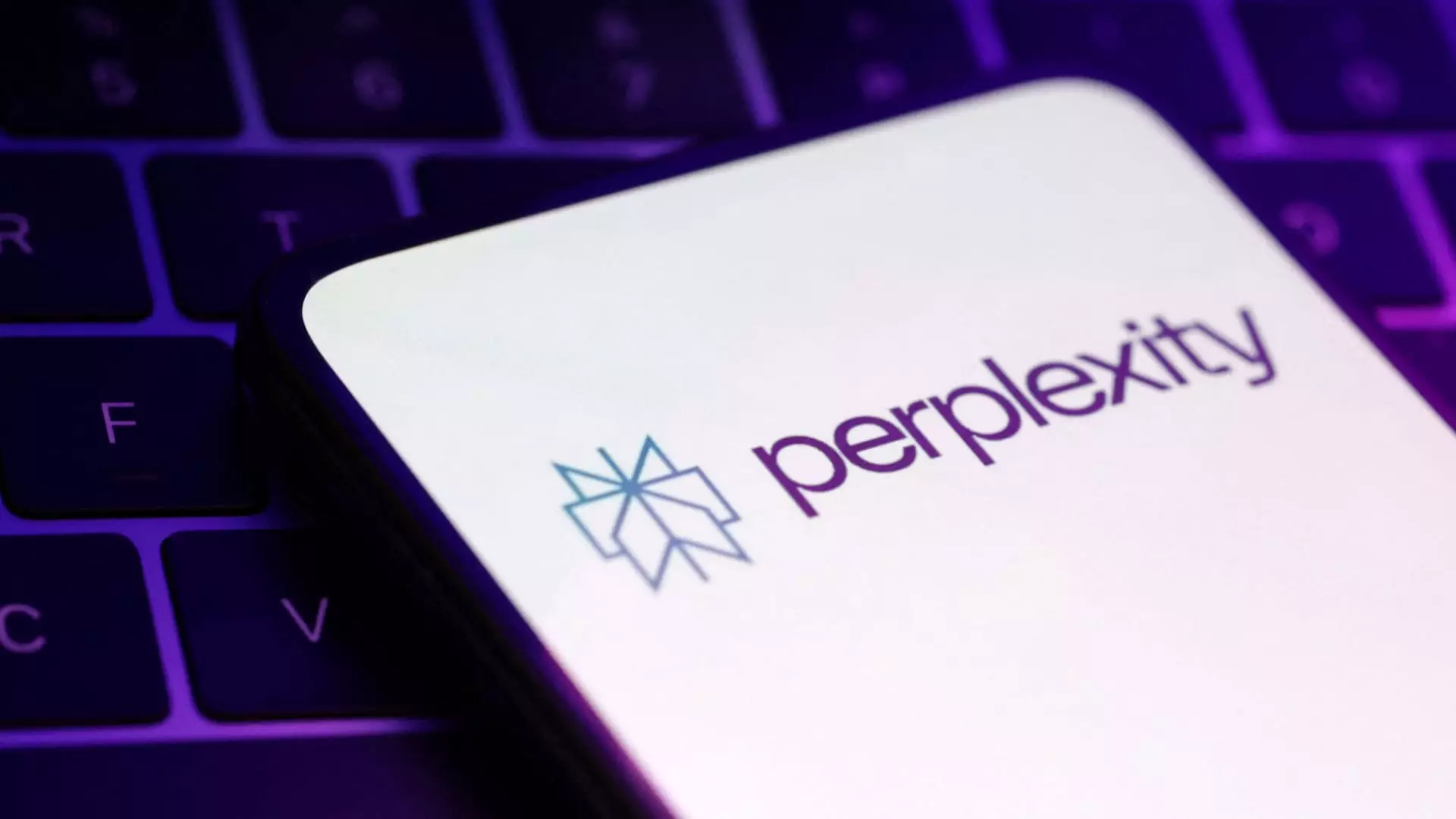The artificial intelligence startup, Perplexity AI, has been making headlines recently due to its plans to start running ads on its search app in the fourth quarter. Despite the company’s impressive growth and increasing user base, it has been embroiled in controversy surrounding accusations of plagiarizing content from various media outlets. This situation raises questions about the company’s ethics and practices, as well as its impact on the digital ecosystem.
According to information obtained by CNBC, Perplexity AI has been actively promoting its search app through a pitch deck that highlights the app’s reach and growing user engagement. The company boasts of having more than two million downloads and 230 million monthly users, with U.S. queries seeing an eightfold increase in the past year. These numbers reflect the company’s rapid expansion and popularity among users seeking AI-assisted search capabilities.
However, Perplexity AI’s success has been overshadowed by allegations of plagiarizing content from reputable media outlets. Reports from Forbes and Wired surfaced indicating that the company had posted plagiarized versions of articles without proper attribution. These accusations cast a shadow of doubt on Perplexity’s commitment to originality and respect for intellectual property rights. The company has since made changes to address these concerns, but the damage to its reputation has already been done.
In an effort to generate revenue and foster relationships with publishers, Perplexity AI introduced a revenue-sharing model that allows publishers to earn money through the company’s search engine. This model incentivizes publishers to contribute content by rewarding them with a share of the ad revenue generated from their articles. By engaging media outlets such as Fortune, Time, and The Texas Tribune, Perplexity aims to create a mutually beneficial ecosystem that benefits both publishers and users.
With plans to incorporate ads into its search app, Perplexity AI is gearing up to follow a CPM (cost per thousand impressions) model that is expected to yield significant returns. The company’s advertising categories will initially focus on key topics such as technology, health, finance, and entertainment, catering to a diverse user base. By offering advertisers the opportunity to sponsor related questions and display ads alongside search results, Perplexity aims to capitalize on its growing user demographic.
In the realm of AI-assisted search, Perplexity AI’s emergence as a major player poses a threat to industry giants like Google. Investors view AI-powered search engines as disruptors that could reshape how consumers access information online. OpenAI’s SearchGPT and Google’s “AI Overviews” are just a few examples of the industry’s response to this evolving landscape. Perplexity’s innovative approach to AI-assisted search is a reflection of the company’s ambition to challenge the status quo and redefine the digital search experience.
Perplexity AI’s journey from startup to controversy-ridden powerhouse reflects the complex nature of innovation in the digital age. While the company’s growth and monetization strategies have garnered attention and praise, its ethical lapses and plagiarism accusations serve as cautionary tales for aspiring tech companies. As Perplexity continues to navigate its path to success, balancing innovation with integrity will be crucial in shaping its reputation and impact on the digital ecosystem.

